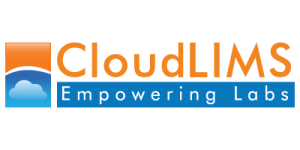
Breaking the Cycle: Effective Strategies for Cannabis Testing Labs and Regulators to Address THC Inflation and Lab Shopping

The legalization of cannabis in different states in the US has resulted in a rapid expansion of the industry. It is predicted that the regulated cannabis industry will reach $82.3 billion by 2027. The primary factors contributing to the growth of the cannabis industry are the increasing acceptance and legalization of cannabis for both medical and recreational purposes. This trend is expected to continue as more states realize the potential advantages of legalizing cannabis, including generating more tax revenue, creating job opportunities, and providing medical benefits. The legalization of cannabis has also stimulated new research and development, leading to innovative new products. The expansion of this industry is being propelled by the growing popularity of cannabis commodities, such as edibles, oils, and tinctures, among consumers. This has resulted in a wide range of opportunities for both entrepreneurs and investors. Thus, we are observing the emergence of various cannabis-related enterprises, which include those engaged in the growing, processing, testing, and distribution of cannabis products, as well as those providing legal, financial, and consulting services.
The industry has a lot going for it. Nevertheless, despite the early successes, it has experienced some obstacles, one of which gained attention in 2022 – the problem of THC inflation. The issue has caused extensive laboratory shopping as cultivators strive to acquire the greatest THC concentrations in their products.
THC Inflation, Lab Shopping, and the Vicious Cycle
THC inflation refers to the act of falsely elevating THC levels in a sample to show a greater THC concentration than what actually exists. Strains with less than 10% THC are classified as low THC strains, while those with over 20% THC are considered high THC strains.
As a result of THC inflation, the lab shopping trend has emerged, in which unethical producers search for laboratories that falsely enhance THC levels. This activity has become so common that certain labs openly promote their services based on the high THC numbers.
Many people who use cannabis believe that products containing higher levels of THC always produce stronger effects. However, this is a mistaken belief, as the potency of a cannabis product cannot be determined solely by its THC content. The misconception has contributed to an exponential increase in demand for high-THC products. As a result, consumers are willing to pay more for these products. The emphasis on high-THC goods has given rise to fraudulent laboratories that deliberately inflate THC levels. Unethical producers are attracted to these laboratories, while ethical ones experience a decline in their business. This practice brakes consumer trust and undermines the industry’s credibility. If labs continue to allow the labeling of products with falsely high potency, customers will lose faith in the regulated market.
Breaking the Cycle: Addressing the Twin Trends of THC Inflation and Lab Shopping
The absence of standardized testing procedures in the industry is leading to mounting concerns about THC potency inflation. This is due to variations in the methodologies and equipment used by different labs, resulting in inconsistent test results. Unethical labs take advantage of this and report exaggerated THC levels. Moreover, the scope for manual intervention allows dishonest labs to manipulate results and deceive regulatory agencies.
Some of the ways to control THC inflation are outlined below:
- It is crucial to establish a universal testing standard within the industry.
- The same samples should be analyzed by multiple labs, and any anomalies should be recognized. States should then promptly act against labs that report inflated THC numbers knowingly.
- It is important to eliminate the motivation for inflating THC potency. This can be achieved through various measures such as promoting transparency among labs, conducting regular audits by state regulatory bodies to detect any data inconsistencies or inaccuracies, and hiring expert data scientists by state agencies. This, in turn, will boost consumers’ confidence in the regulated market.
- It is also essential to dispel the incorrect belief that higher THC levels are the only reliable indicator of potency. Raising awareness and promoting effective communication in this regard would help tackle the problem of THC potency, thereby reducing the occurrence of lab shopping.
- Lastly, laboratories must obtain accreditation to ISO/IEC 17025 to demonstrate their proficiency in generating reliable results.
Image 1: A diagrammatical depiction of diverse strategies aimed at controlling the prevalence of THC inflation and lab shopping in the cannabis industry (Figure courtesy CloudLIMS)

Why Cannabis Lab Testing Software?
A Laboratory Information Management System(LIMS), also known as cannabis lab testing software, can assist in fulfilling the ISO 17025 requirements effortlessly, which can increase the level of trust and assurance in the precision of the laboratory’s test results.
The adoption of cannabis lab testing software can be a game-changer. By integrating analytical instruments and ensuring strict adherence to quality standards, cannabis lab testing software automates processes, thus minimizing the potential for human error in test results. And that’s not all. With cannabis lab testing software, reports can be generated with a scannable QR code, which can be easily shared with customers in real-time. This QR code can also be configured to lead to the original CoA generated by the lab, allowing consumers to verify the composition of the product they’re purchasing. This not only fosters transparency but also instills greater trust and confidence in the products customers consume.
Cannabis lab testing software ensures the authenticity and reliability of laboratory data. The system leaves no room for manual manipulation. It tracks and records every laboratory activity with utmost precision, from staff login activities to changes in documents, sample records, and test results. Maintaining high-quality standards is paramount to establishing the credibility of results, and cannabis lab testing software helps accomplish it. It effectively manages QC sample results and identifies analytical errors by comparing them with the test samples, providing an added level of trust in the lab’s results.
Image 2: A cannabis lab testing software to record all laboratory activities with a date and time stamp (Figure courtesy CloudLIMS)

Conclusion
The legalization of cannabis in most US states has led to a rapidly expanding industry. However, the industry has faced obstacles, including the issue of THC inflation and biased selection of labs, which undermine the credibility of the regulated cannabis market. The absence of standardized testing procedures and the variation in methodologies and equipment used by different labs are gaps that corrupt labs have taken advantage of. To address these issues, it is crucial to establish a universal testing standard, enhance transparency among labs, and state agencies must conduct regular audits and recruit skilled data scientists. The adoption of a LIMS by cannabis testing labs can assist in fulfilling the ISO 17025 requirements, thus increasing the level of trust and assurance in the accuracy of the laboratory’s results. With the right measures in place, the cannabis industry can continue to grow and thrive, providing medical benefits and job opportunities, and generating more tax revenue.
About Astrix
Astrix is the unrivaled market leader in creating & delivering innovative strategies, technology solutions, and people to the life science community. Through world-class people, process, and technology, Astrix works with clients to fundamentally improve business, scientific, and medical outcomes and the quality of life everywhere. Founded by scientists to solve the unique challenges of the life science community, Astrix offers a growing array of fully integrated services designed to deliver value to clients across their organizations. To learn the latest about how Astrix is transforming the way science-based businesses succeed today, visit www.astrixinc.com.
About the Author

Montserrat Valdes is a highly skilled chemical engineer with a diverse background in research and industry. She holds a Master of Science degree in Chemical Engineering from the University of Saskatchewan and an Analytical Chemistry Diploma from the National Autonomous University of Mexico. Currently, Montserrat is working with CloudLIMS.com as a Scientist.
Montserrat is an experienced chemist with expertise in the analysis of cannabis and nicotine-containing products. As a QC Chemist and Analytical Chemist, she has conducted numerous accredited testing methods to ensure the quality and compliance of cannabis products. Her experience also includes validating analytical testing methods and operating, calibrating, and troubleshooting a variety of analytical instruments, including HPLC-FLD/DAD/VWD, IC, and LC-MS.
In addition to her work as a chemist, Montserrat has also served as a Research Engineer, successfully coordinating various environmental projects of great importance. These projects include the simultaneous capture of NH3 and H2S using nanoparticles, the biodegradation of surrogate naphthenic acids, and the adsorptive removal of antibiotics from livestock waste streams.
Montserrat has also made significant contributions to scientific literature through her research articles and conference presentations. Her publications in journals such as the Journal of Environmental Chemical Engineering and Bioprocess and Biosystems Engineering highlight her expertise in topics ranging from nanotechnology applications to biodegradation and wastewater treatment.
Case Study: LabWare Centralized Data Review for a Global Biopharmaceutical Company
Overview A global biopharmaceutical company specializing in discovery, development,... LEARN MOREWhite Paper: Managing Data Integrity in FDA-Regulated labs.
New White Paper LEARN MORELET´S GET STARTED
Contact us today and let’s begin working on a solution for your most complex strategy, technology and strategic talent services.
CONTACT US



